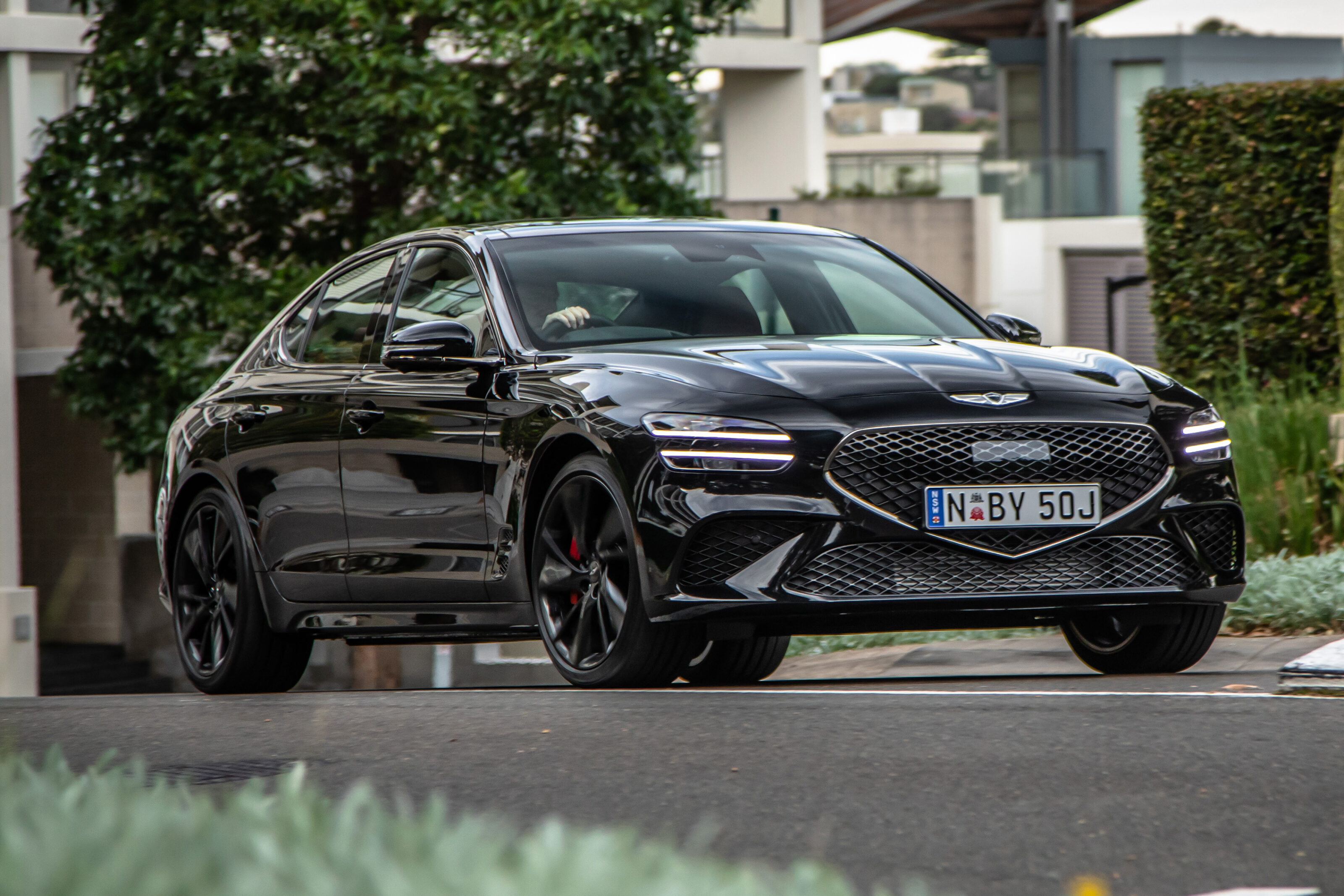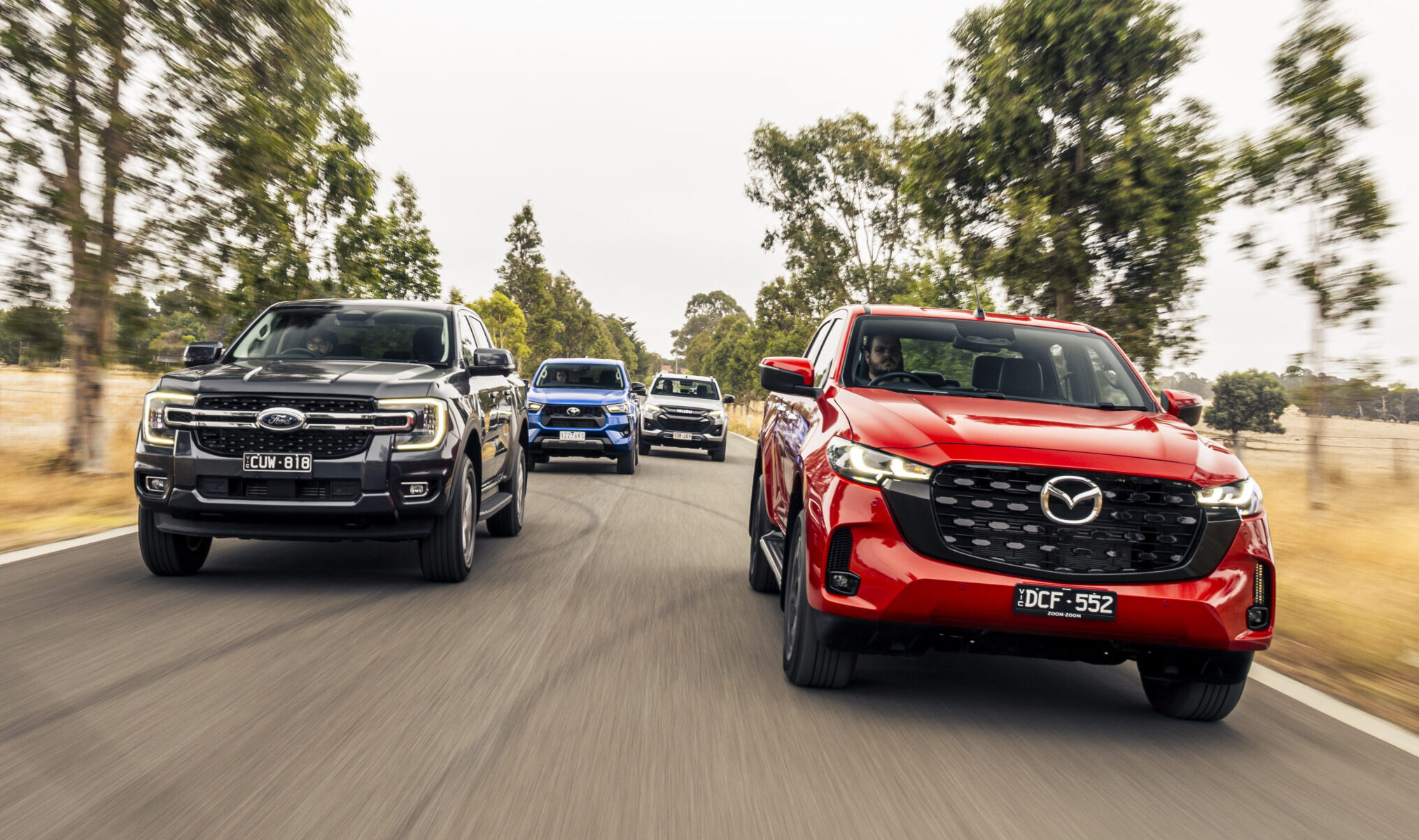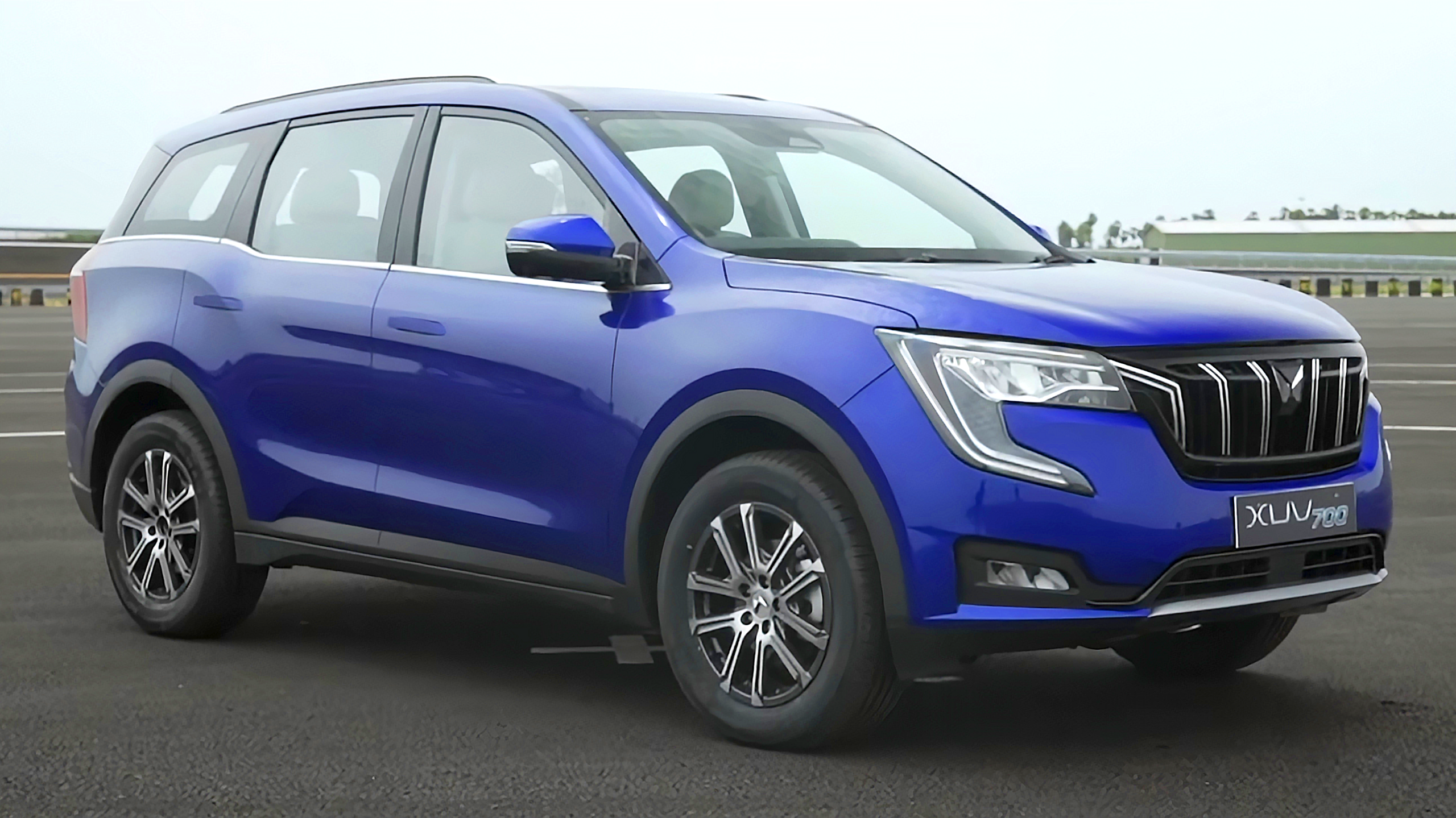Score breakdown
Things we like
- Price
- Performance
- Standard equipment
Not so much
- Luxury pack a fair premium
- Some average cabin details
The facelift to the mid-sized G70 sedan range completes the Genesis brand’s transition to its bold ‘Athletic Elegance’ design language. Debuting last year on the arresting GV80 SUV and arguably at its most resolved across its forthcoming GV70 smaller sibling, the challenge in four-door form is primarily the melding of a bold new look to an older approach to form.
Beauty or brute, the result looks very much what it is: more a new identity than mere facial remodelling, executed with just enough cohesion to not conspicuously appear like the stylistic bridging exercise it is. And one that doesn’t muster up the new-world punch and distinction its clean-sheet stablemates flaunt.
There’s more to the transformation than grafting the brand’s new crest grille and ‘quad lamp’ lighting, though not measurably more. The front guards are new, the bootlid is reshaped, the dash fascia subtly revised to accommodate cabin hardware changes.
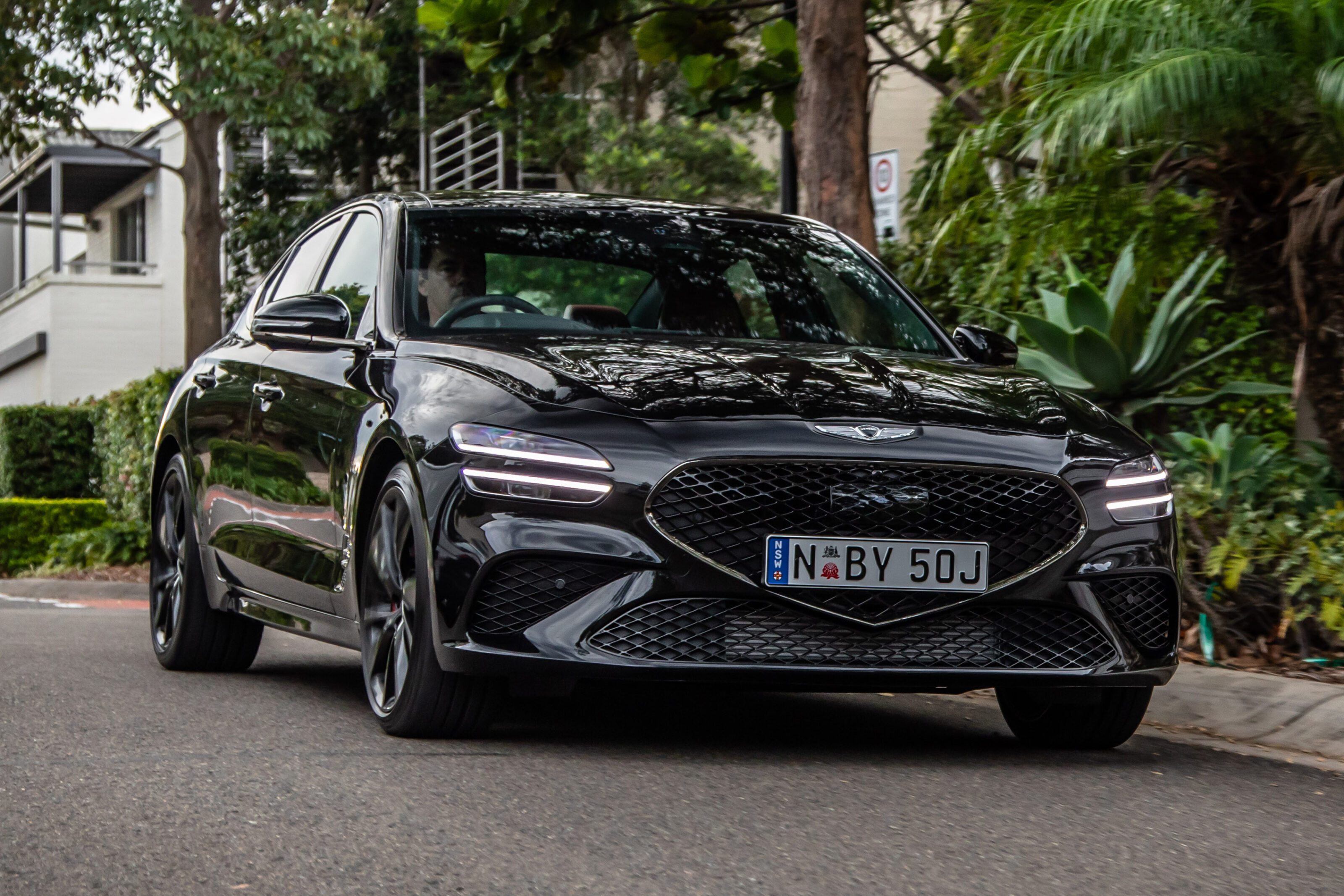
It’s a slam dunk conversion nose-on, distinctly different in chase – where our flagship 3.3T Sport (with Luxury Package) flaunts new dual oval pipes and faux diffuser – if somewhat familiar from most other viewpoints. One exception is the fetching new-look, staggered 19-inch black Sport-spec rolling stock. It’s more contemporary and somewhat fancier, perhaps, though stylistic adventure does have its limitations in a mid-lifecycle update.
The old six-variant range has been trimmed to just two, a choice of turbo-four 2.0T and twin-turbo V6 3.3T Sport, with a Sport trim option for the former and further Luxury Package available atop any configuration, upon which buyers can ‘qualify’ for matte paintwork. This new structure fits the built-to-order cache of exclusivity that Genesis is keen to foster – typically a three-month gestation for delivery – though, in offering package bundles rather than specific detailing, the process isn’t quite the pursuit of bespoke personalisation it might seem.
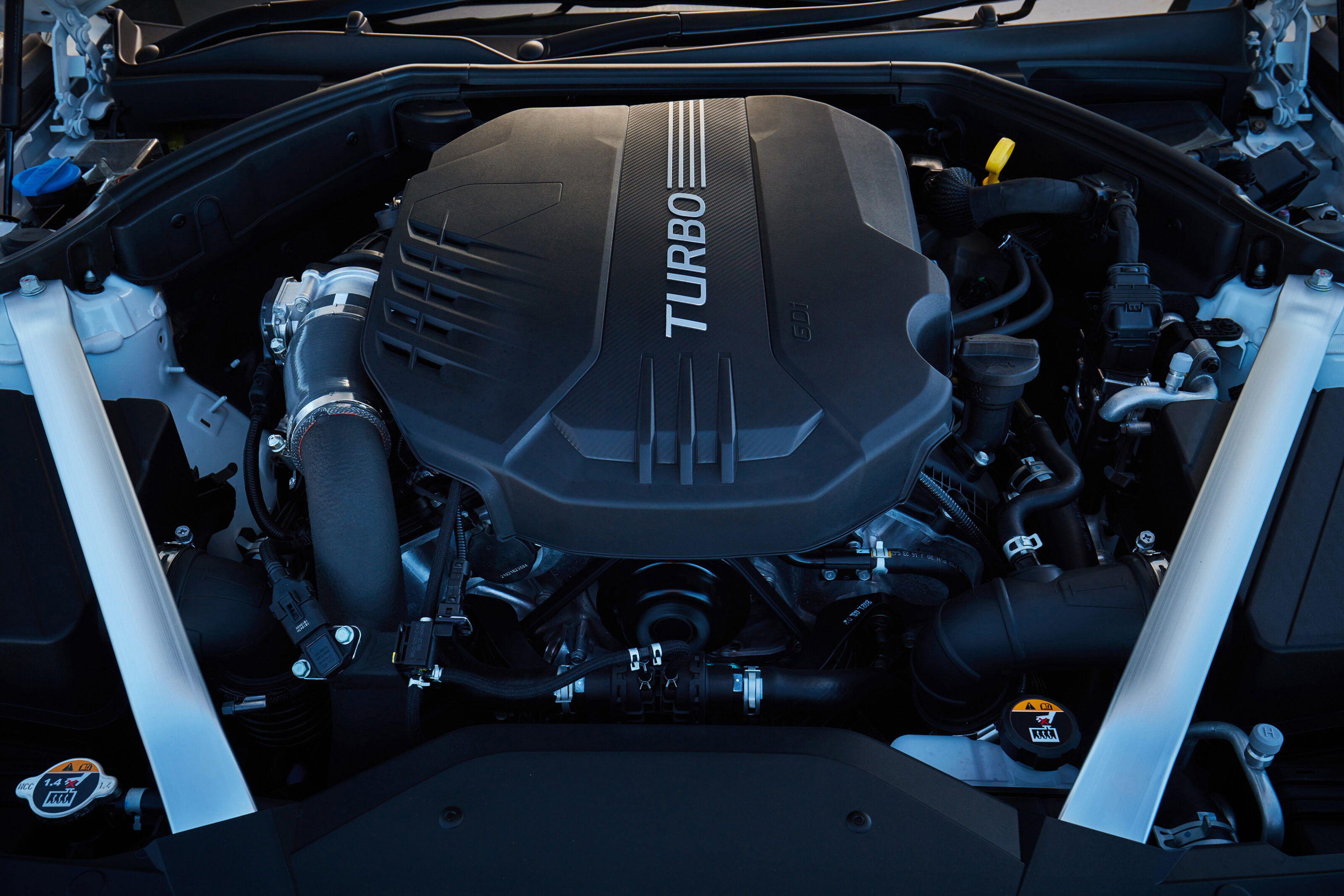
Our tester, then, is the 3.3T Sport ($76,000 before on-roads) in no-cost high-gloss paint with Luxury Package ($10,000), which adds red quilted Nappa leather as its fundamental theme. Thus, its $86k ask marks fairly barren four-door territory between Kia’s all-you-can-eat Stinger V6 GT ($63,760 list) – against which many pundits will cross-shop the G70 flagship – and the Audi S4 ($99,500 list), BMW M340i xDrive Pure ($101,900 list) and Mercedes-AMG C43 ($113,700 list) that Genesis eyes in its competitive cross-hairs.
Broach any German-related topic with Genesis company reps and their first (and often last) lines of defence are superior value for money. Badge cachet and providence will come in time, it hopes, for now throwing everything bar the kitchen sink at specification and equipment is as much the Korean’s measure of prestige as a method of traction to push upmarket.
Beauty or brute, the result looks very much what it is: more a new identity than mere facial remodelling
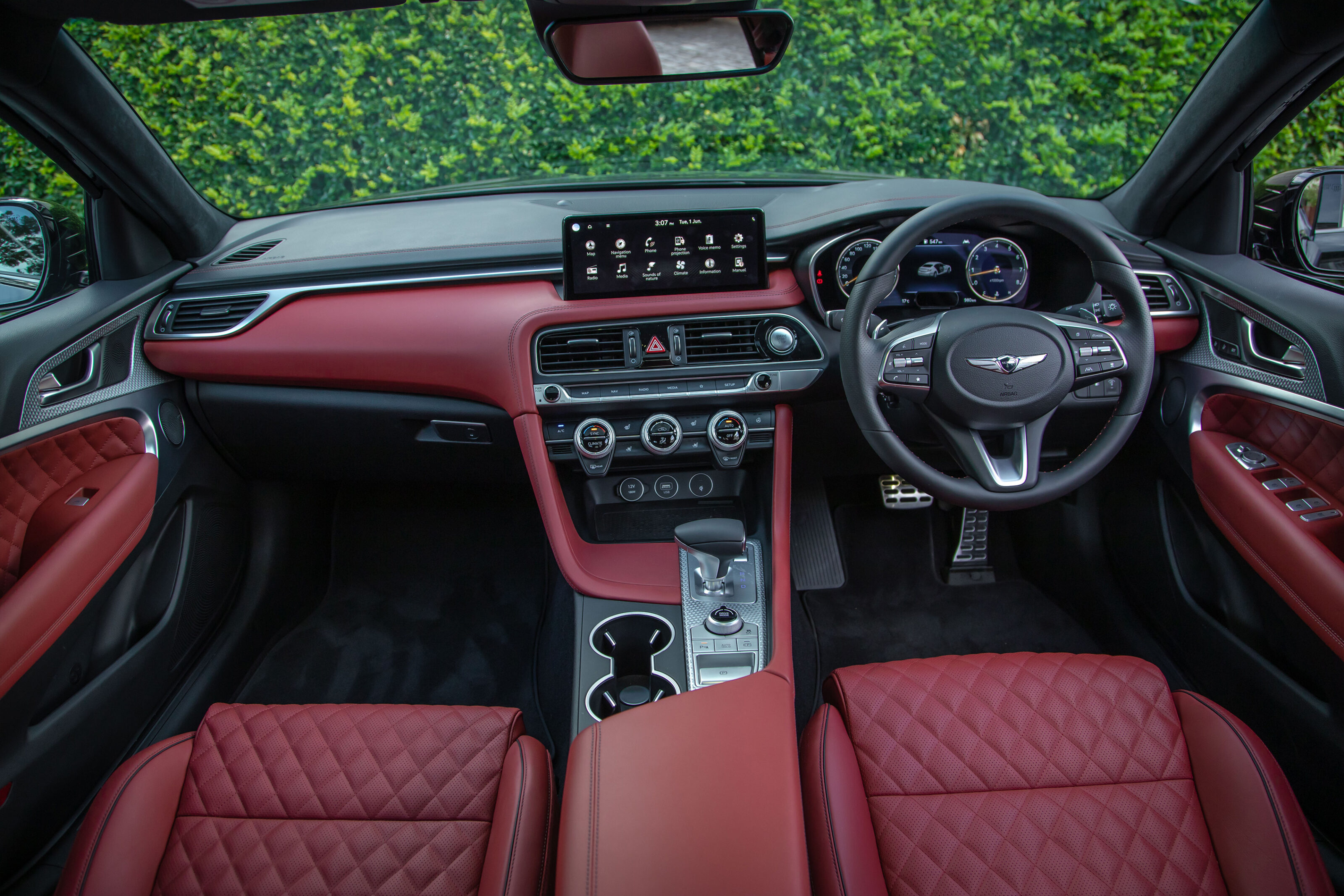
Where the old G70 traded hard on big size, flush kit and a healthy heartbeat, this facelifted version lays on the glitz and opulence thicker to fatten its lure. Its features list is dizzying and too expansive to fully unpack here but the MY21 range-wide update cheat sheet for standard gear includes 8.0-inch digital instrumentation, 10.25-inch infotainment, heated and ventilated seating, a panoramic glass roof, surround-view monitoring, Michelin Pilot Sport 4 rubber, and smarts such camera-based in-dash blind-spot visuals and pedestrian-friendly ‘reverse light guide’ assistance to name a few areas. The V6 versions now get an active variable exhaust system as well.
The ten-grand Luxury bundle adds niceties such as intelligent headlight functionality, acoustic front door glass and powered bootlid but it primarily focuses on pimping the cabin space’s feel-good factor.
Climb in and it’s an instant assault of red diamond-quilted trim, Nappa leather for seating and convincing similar stuff crept into the door trims, framed with neat piping and double stitching (there are five colour schemes available across the G70 range). The Luxury effect adds turned alloy inlays and suede headlining, blend with a cocktail of matte-effect execution to anchor its somewhat fussy yet convincingly opulent aesthetic in broader appreciation.
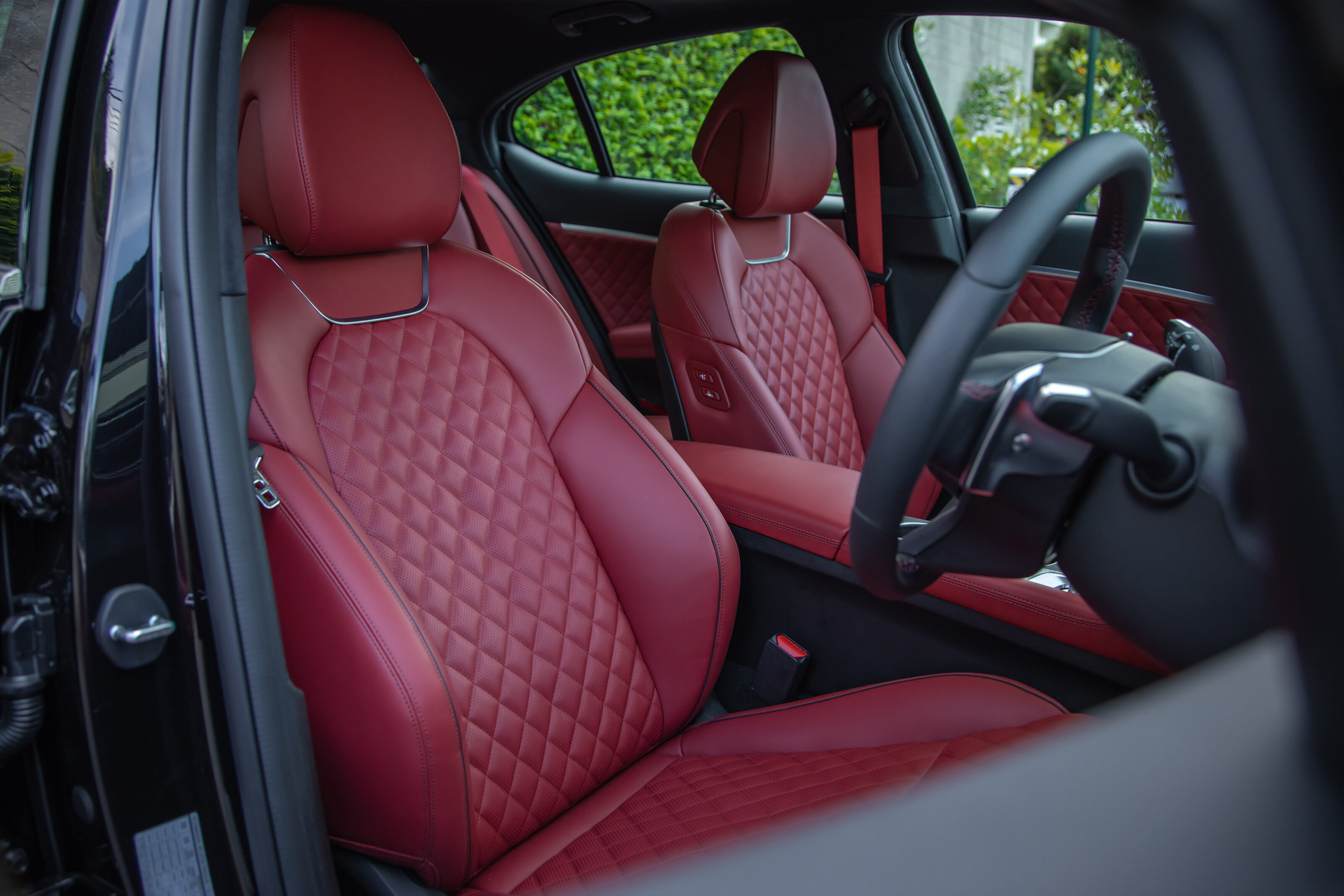
The party trick is the large 12.3-inch digital instrumentation, with its subtle if convincing three-dimensional presentation that morphs between different appearances in tandem with drive mode changes (Eco ‘blue’ looks best to these eyes). Equally, the sharp 10.25-inch multimedia system holds up well in context, even if its Genesis-specific content and general usability is much closer to high-spec Hyundai crop than it is anything like Mercedes-Benz’s considerably flashier MBUX jewellery. The brilliant camera system, with forward view, is a highlight.
Under close inspection, some cabin details fall short. Almost all satin alloy features feel plastic to touch and some controls – climate and drive mode dials – lack suitably premium tactility. A fancier wheel and some ornate air vents, rather than the plain spec that’s fitted, might’ve knocked the upmarket vibe up a rung or two. Attribute some of this to puttying over old design cues and format, but surely that $10k Luxury splurge could’ve afforded some nicer, less-mainstream detailing.
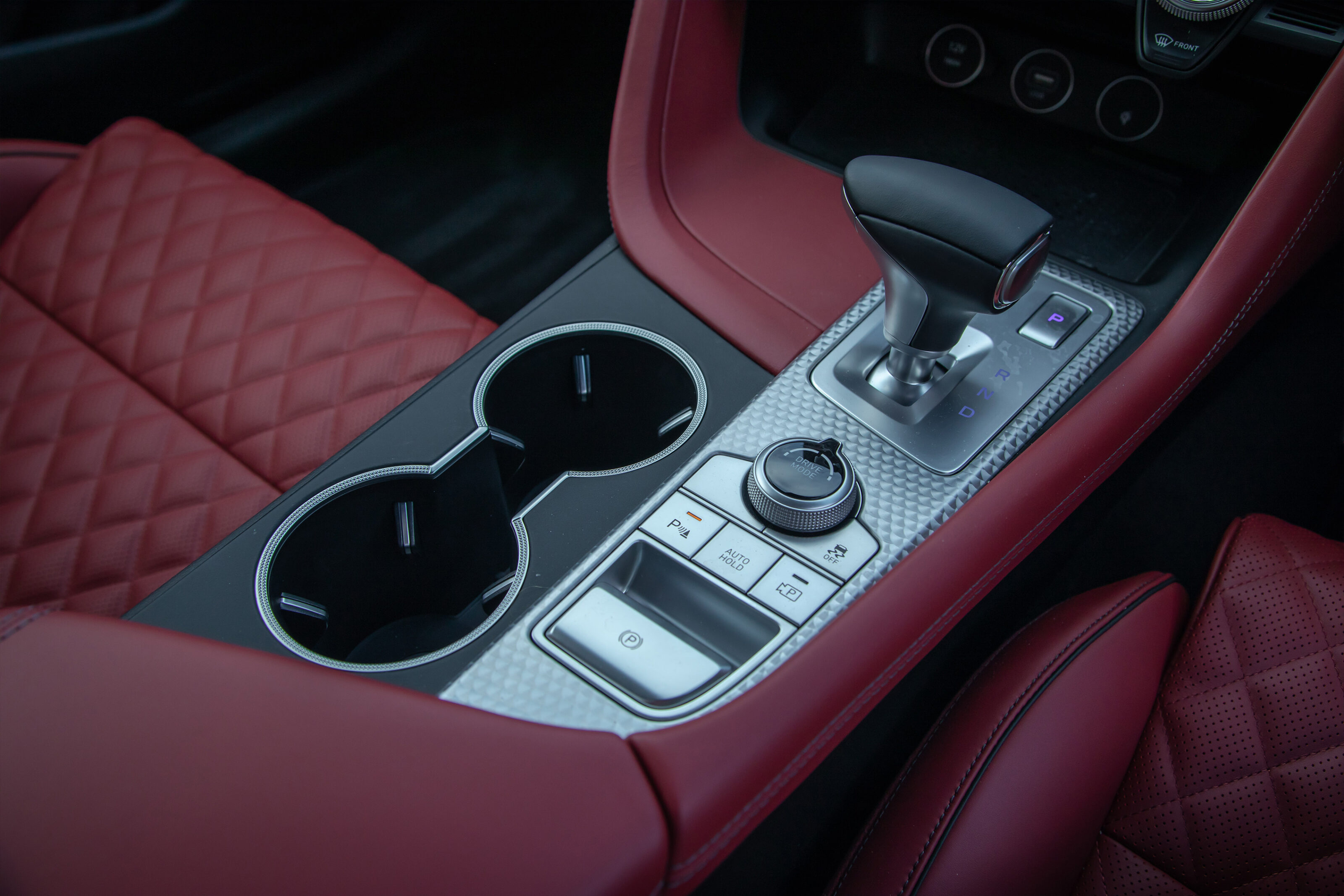
Regardless, Sport-with-added-Luxury spec bats a high average for sheer accommodation and comfort. The seating is excellent, even if the strong outboard focus in row two hampers five-adult practicality, and there’s both sound ergonomics and an ambience that makes is seem roomier than the segment average even if, at 330 litres, its boot space is surprisingly compact.
It feels larger than its sub-4.7-metre length suggests, particularly on the move. Some of this is surely down to the low-slung cabin seating, some of it perhaps because the G70 in full-fat configuration clocks in at a portly 1765kg.
Around town, the mid-sized four-door is far from ponderous, though the mass and footprint of the thing errs on the slightly ponderous side of behaviour and lacks the crisp, light-on-its-feet nature of some Euro-badged segment dwellers, particularly the high-spec turbo-four stuff that broadly sits in the V6 G70’s price band.
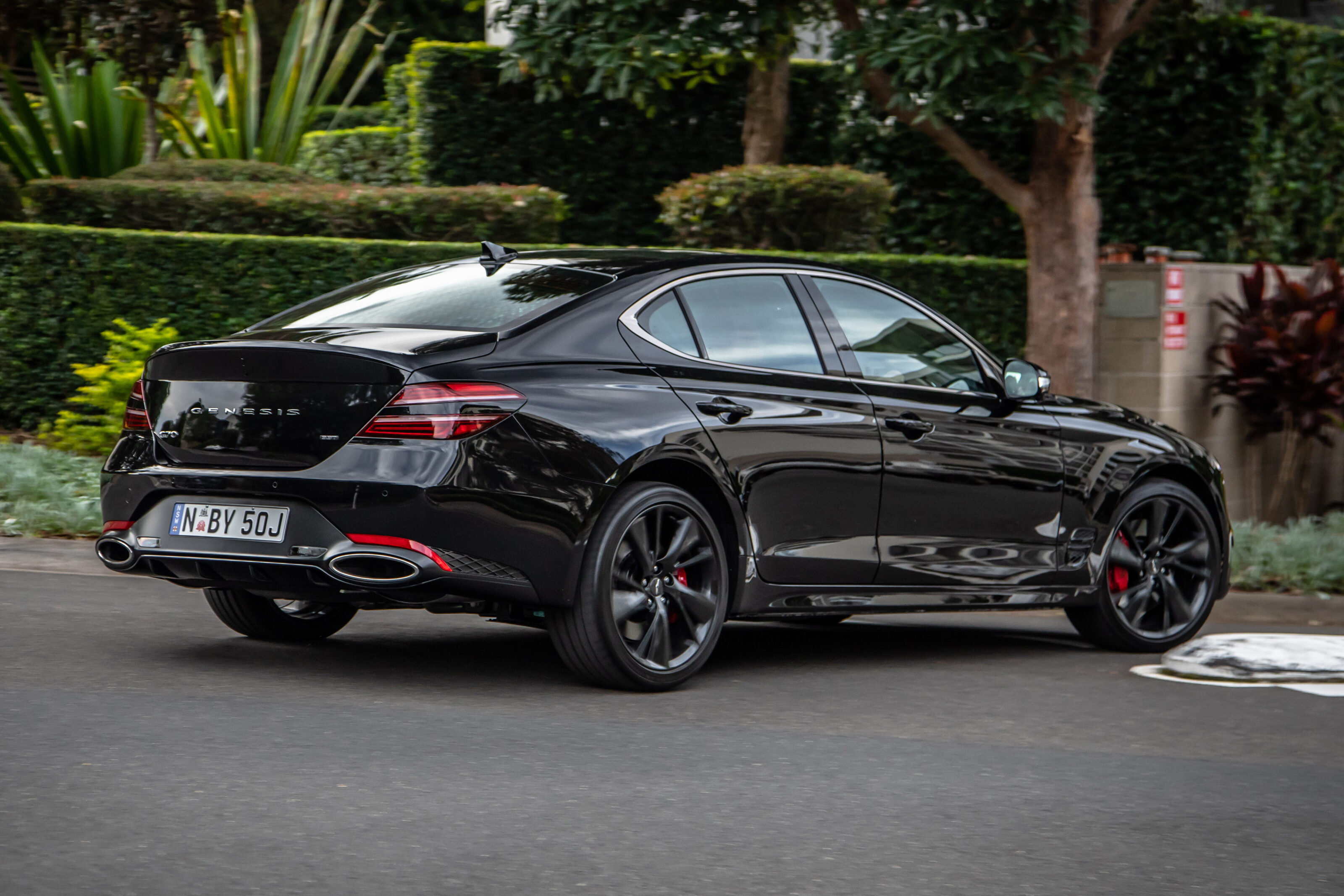
Of course, there are 3.3 litres of twin-turbocharged bent-six thrust to help mask inertia, this version of the otherwise carryover power plant benefiting by an academic two kilowatts, to 274kW, wholly thanks to the new adaptive exhaust hardware prescribed to inject some rock-and-roll into its formerly too-polite soundtrack.
On that, the big six remains innocuous and fizz-free in the Eco or Comfort drive programs. But activate Sport mode and there’s a kick in the low bass frequencies and some conspicuous rasp to the V6 vocals and, for novelty factor, a gentle rib squeeze courtesy of the active front seat bolsters, automatically.
Also new is the harder-core Sport+ mode, “track focused” in Genesis’ own words, that brings newfound sharpness to powertrain calibration, steering response and a surlier damper setting for the adaptive suspension that is, by official accounts, otherwise unchanged in fundamental tune from that of its forebear. It automatically defeats traction control, with separate deactivation of stability control for when whim and situation permit.
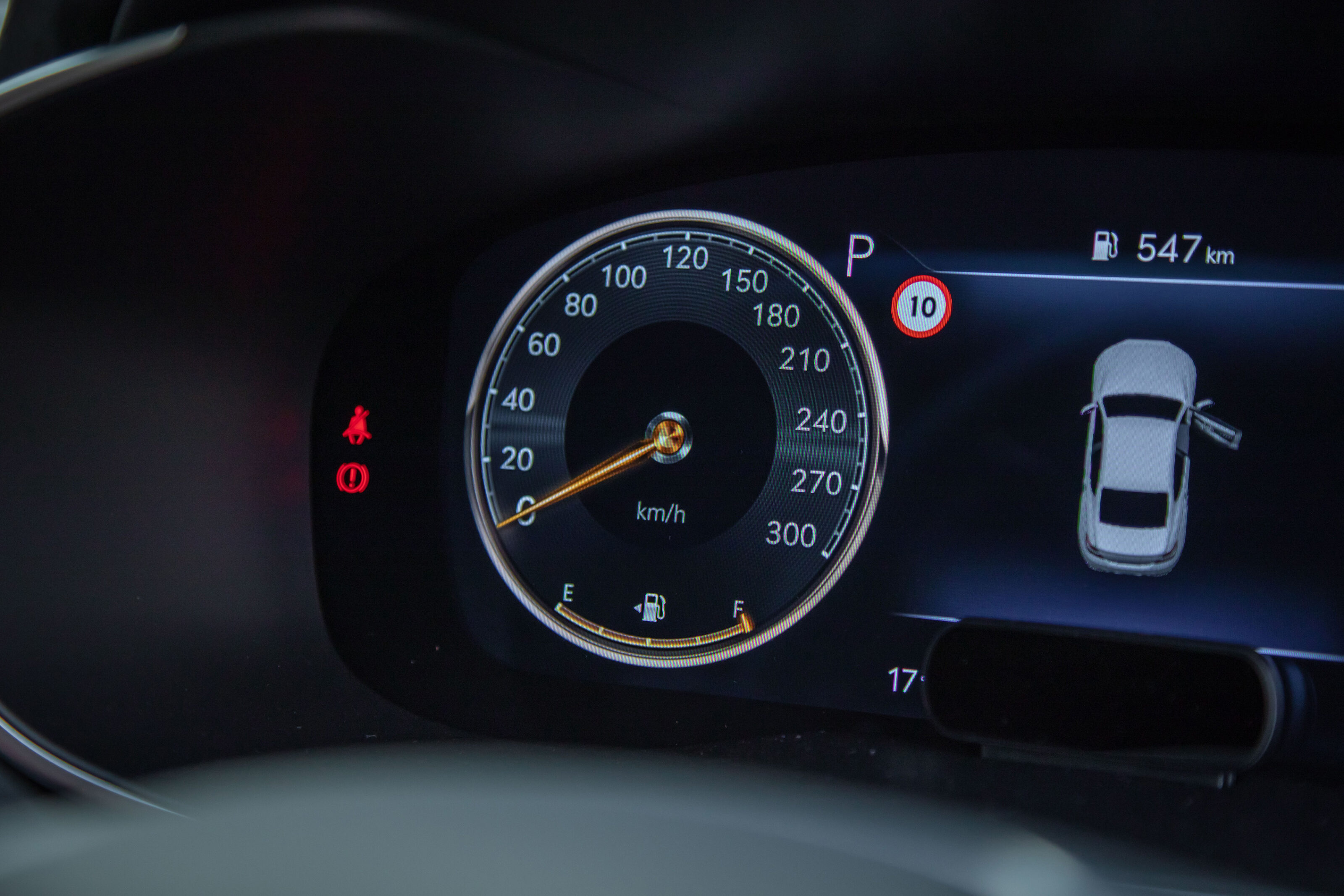
The form guide claims 4.7-second 0-100km/h heroics once the mechanical limited-slip differential leverages the best from those 255mm rear Michelins. In either of G70’s more spirited modes it feels fit to challenge that claim, mostly due to how quickly the force-fed V6 mounts its 510Nm wave – from just 1300rpm – and rides it gloriously towards the sunset.
It’s more clinical and effective than fire and brimstone on the march, though there’s just enough fidgety activity from those traction-teased rears to bring a properly enthusiastic vibe matched suitably with the richer sonics.
More convincingly in character playing the muscle-laden grand tourer, the G70 treats its 6200rpm redline as some last resort, the eight-speed auto nipping cleanly about to maintain the six’s torquey mid-range sweet spot that’s alert without undignified edginess under the right foot. It’s utterly passive at a dawdle, if responsive enough in its lazier drive modes to not demand much of a proper wind-up, the sort of broad-range flexibility that suits its sport-luxury brief impressively well.
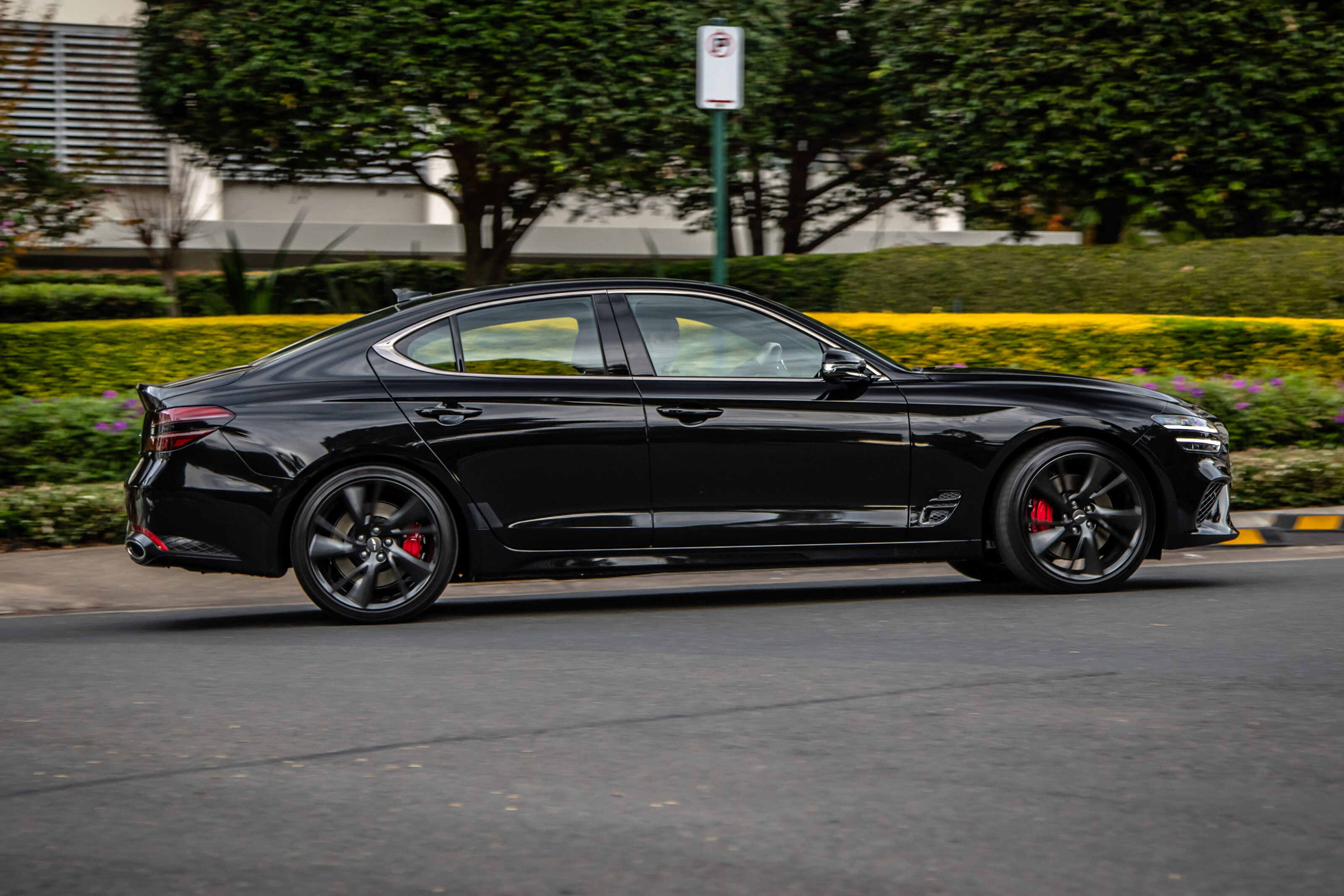
It comes at a (theoretical) cost of a sobering 10.2L/100km advertised combined consumption at a 95 RON minimum. So imagine my surprise when the onboard computer displayed 8.1L/100km after a day of genuinely mixed real-world driving. Go figure.
The G70 balances comfort and purpose quite evenly, never quite nailing its preference to either mast. It’s refined and resolved in its approach to the luxury experience if without properly relaxing and filtering out its slightly taut sporting edge. This is evident in the slightly active primary ride and the generally direct and benevolent steering that can feel under-assisted at times.
At the other end of the talent spread, its sporting purpose seems apologetically reserved until the point where you give it the berries and you grab its scruff, dragging its surprisingly competent dynamic talent out of the sedan’s characteristic closet.
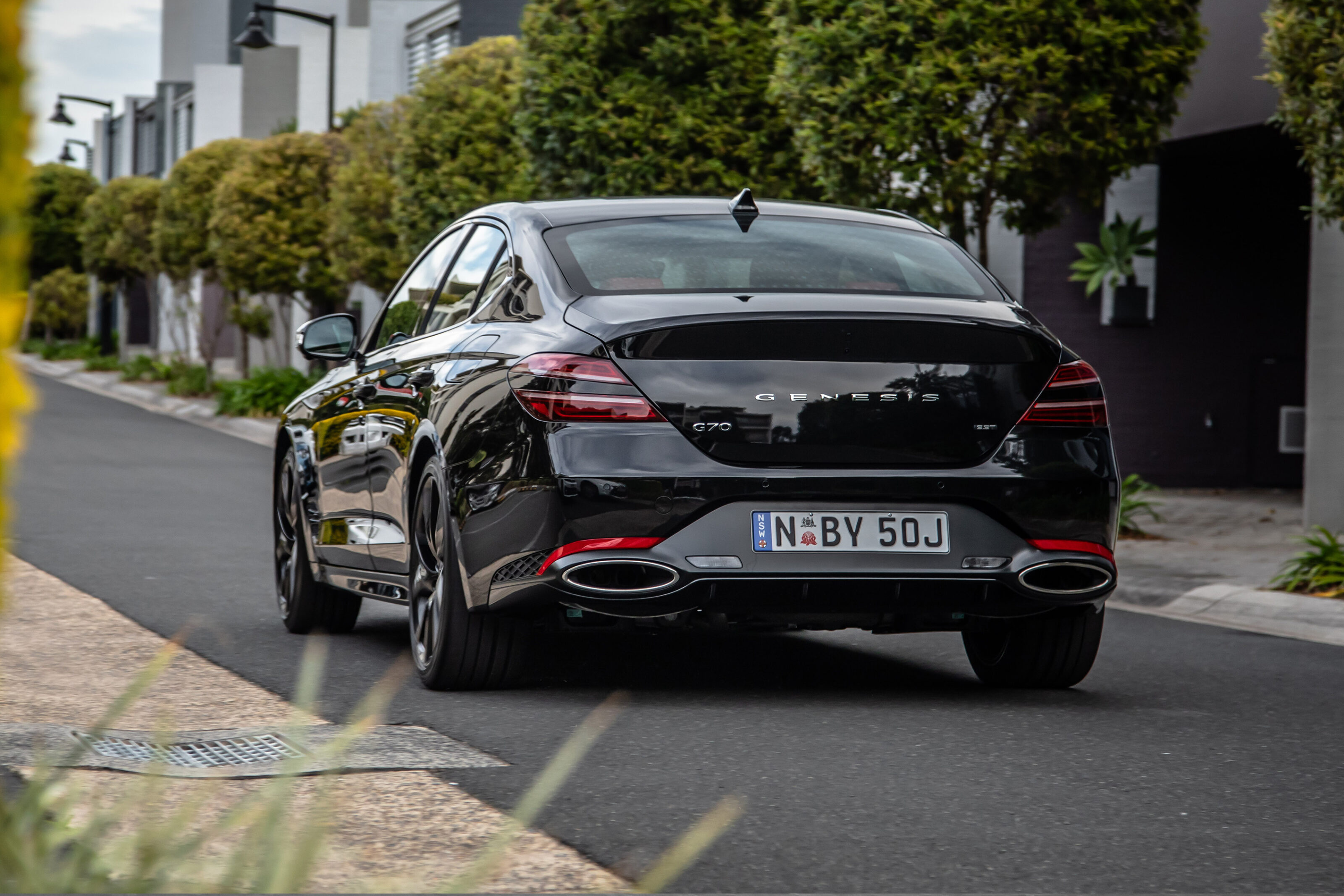
As a ride and handling package, it’s accomplished and well-rounded if safe middling territory that’s short on individual benchmarking merits. And it’s perhaps at its shiny best once you dig unnecessarily deep into sub-menus to tweak powertrain, steering and suspension settings in its assignable Custom drive setting.
There’s variety in its trick bag, but it’s no Jekyll and Hyde, at least so it seems without the opportunity to explore its promised off-street Sport+ heroics at the range’s local Aussie launch.
The G70 balances comfort and purpose quite evenly, never quite nailing its preference to either mast
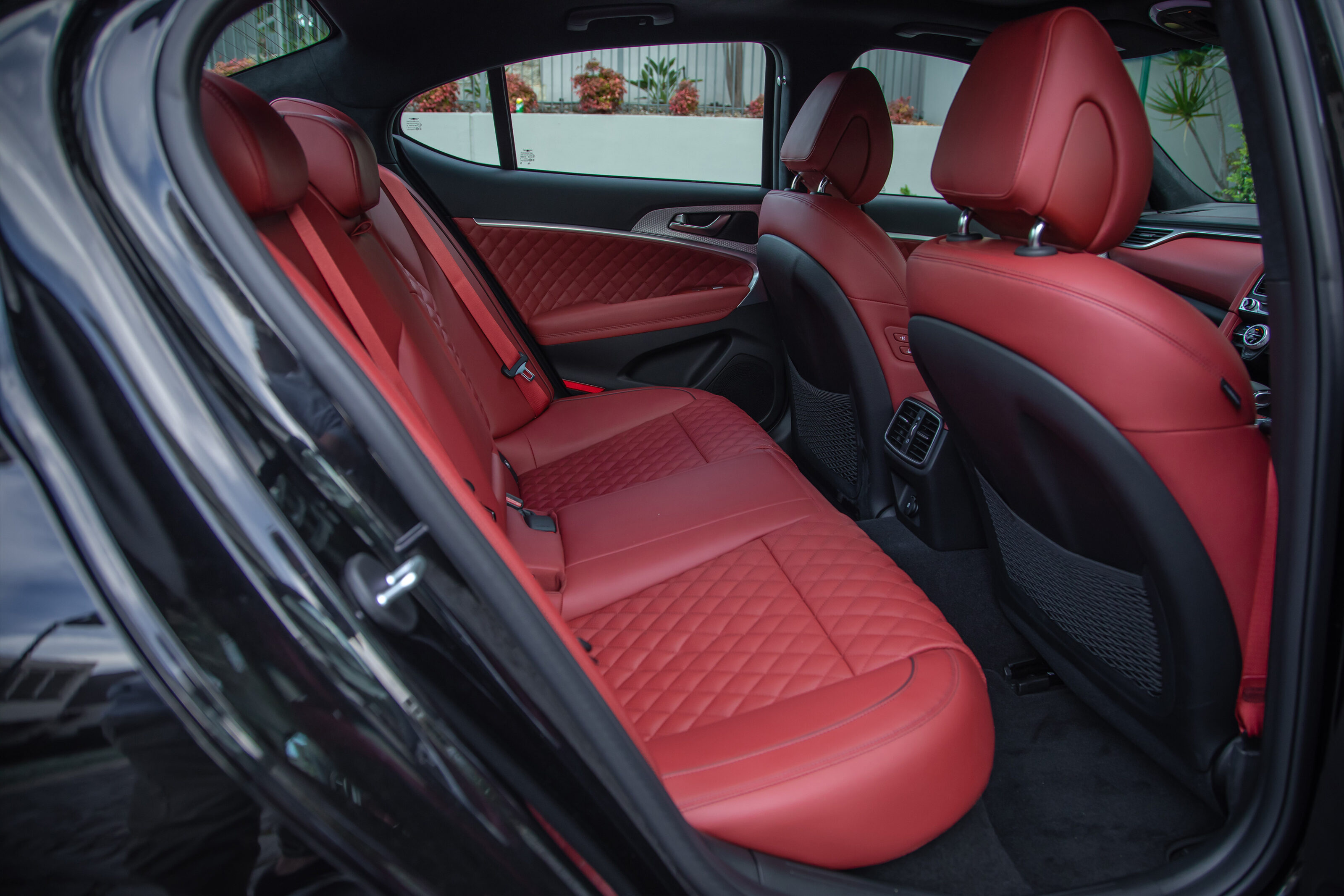
The G70’s current 2018-stamped five-star ANCAP appraisal predates the facelift’s extra safety inclusions, which includes an expansion to 10 airbags (including a front-centre and rear-side units), multi-collision braking, junction turning assist, active blind-spot steering intervention, safe exit warning, rear cross-traffic avoidance, and the nifty blind spot monitor system that feeds camera footage of either lane into the digital driver’s screen at the touch of the indicator stalk. That’s just the new MY21 stuff…
Ownership is where Genesis pitches in hard, with five years (and 50,000kms) of complimentary scheduled (12-month/10,000km interval) servicing – a fistful of savings in itself – that includes valet pick-up and delivery plus courtesy vehicle access. The warranty is a decent five years of unlimited-kilometre coverage.
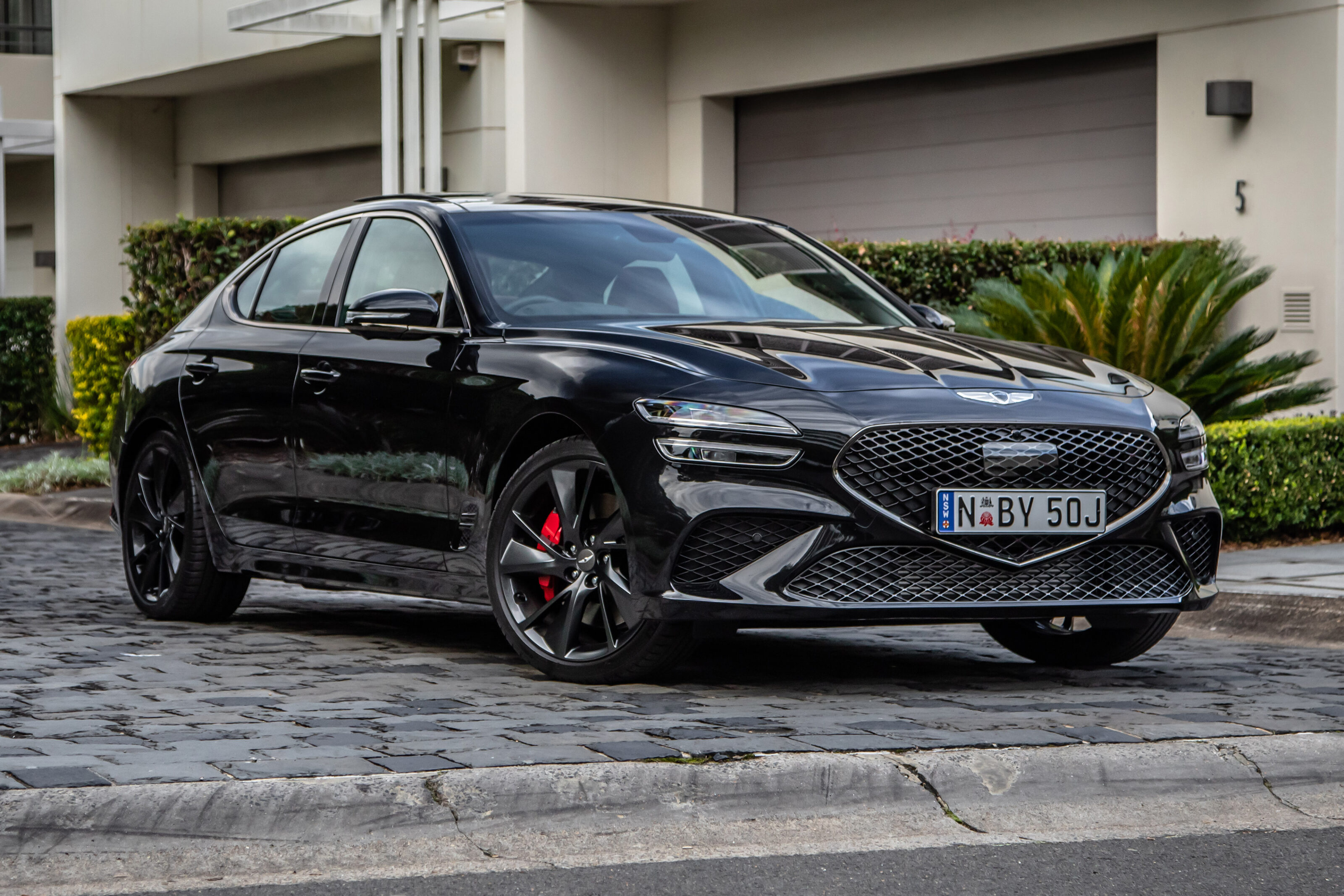
As a complete package the G70 3.3T backs up its sportiness pitch and counters with suitable enough comfort and luxury to fit the desired mould, the combined effect somewhat elevated above the more affordable Kia Stinger and, indeed, Hyundai Sonata N Line alternatives.
Further, it certainly feels a more fulsome package than high-power four-pot Germans flying at the same fiscal altitude and looks bargain-filled against the pricier six-cylinder Euros.
While the G70 just gets away with that New Genesis feeling, it otherwise ticks many of the boxes it needs to right now. Acceptance as a bona-fide prestige figurehead, though, is a longer work in progress.
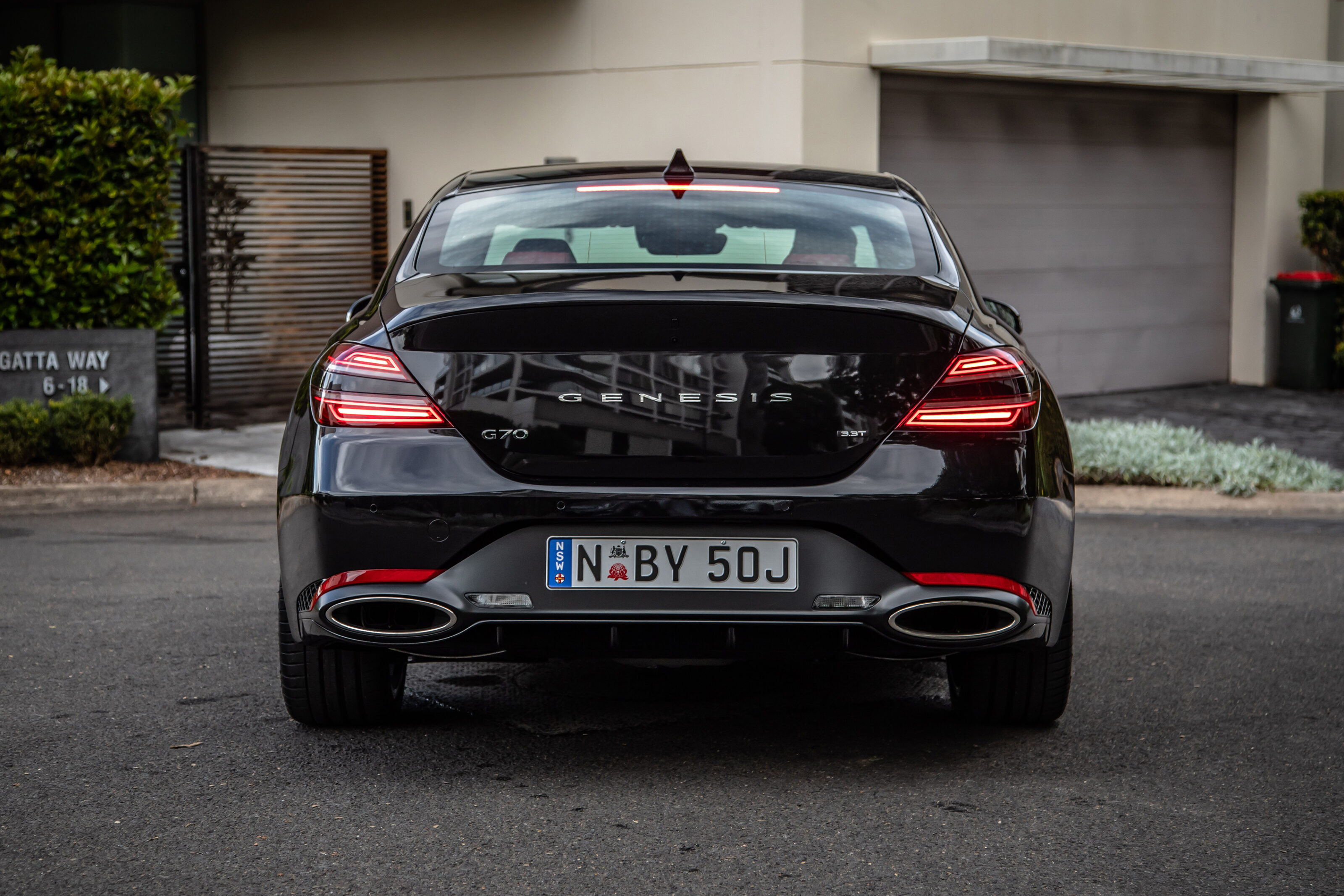
Genesis G70 3.3T Sport specifications
Score breakdown
Things we like
- Price
- Performance
- Standard equipment
Not so much
- Luxury pack a fair premium
- Some average cabin details


